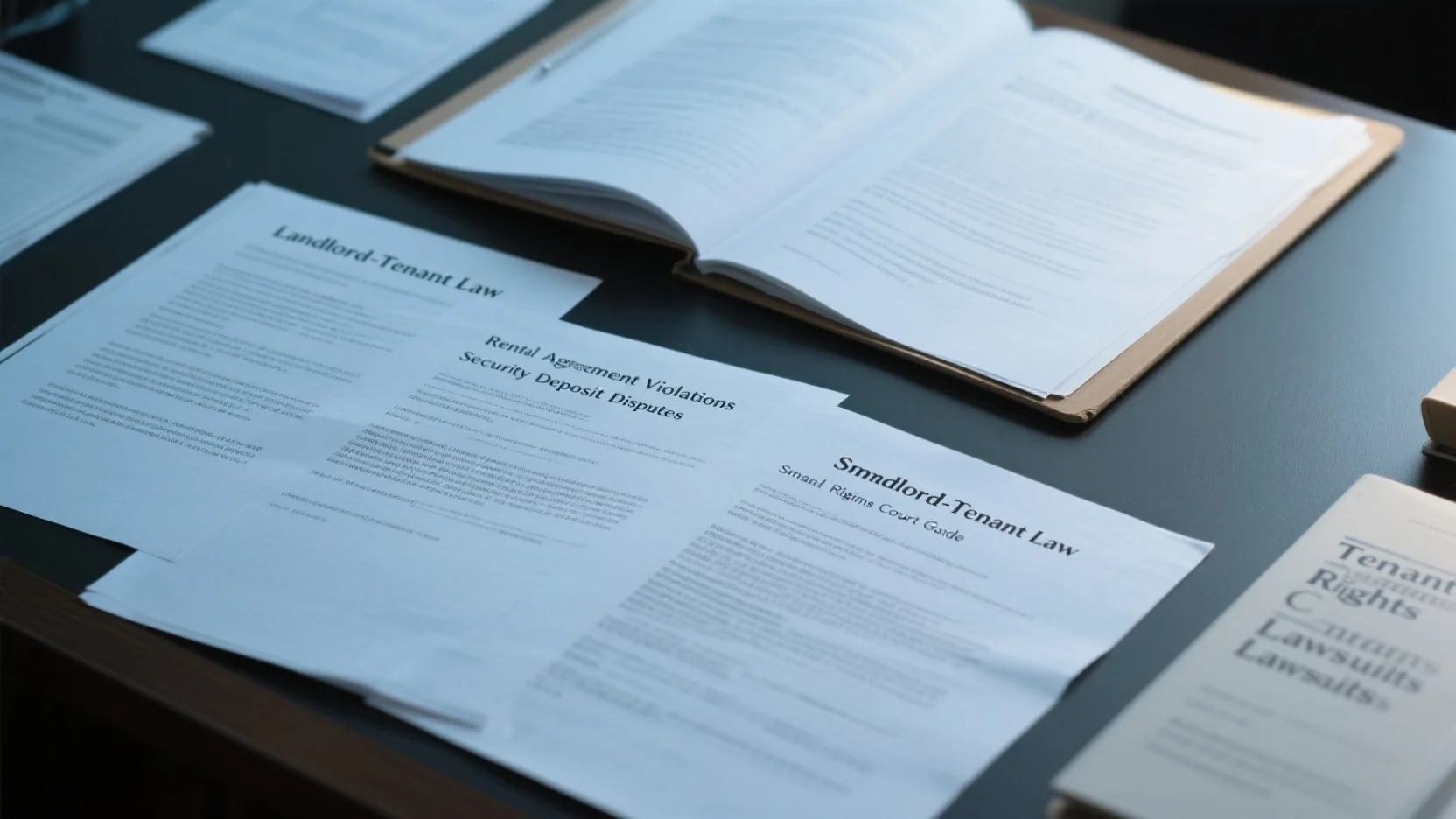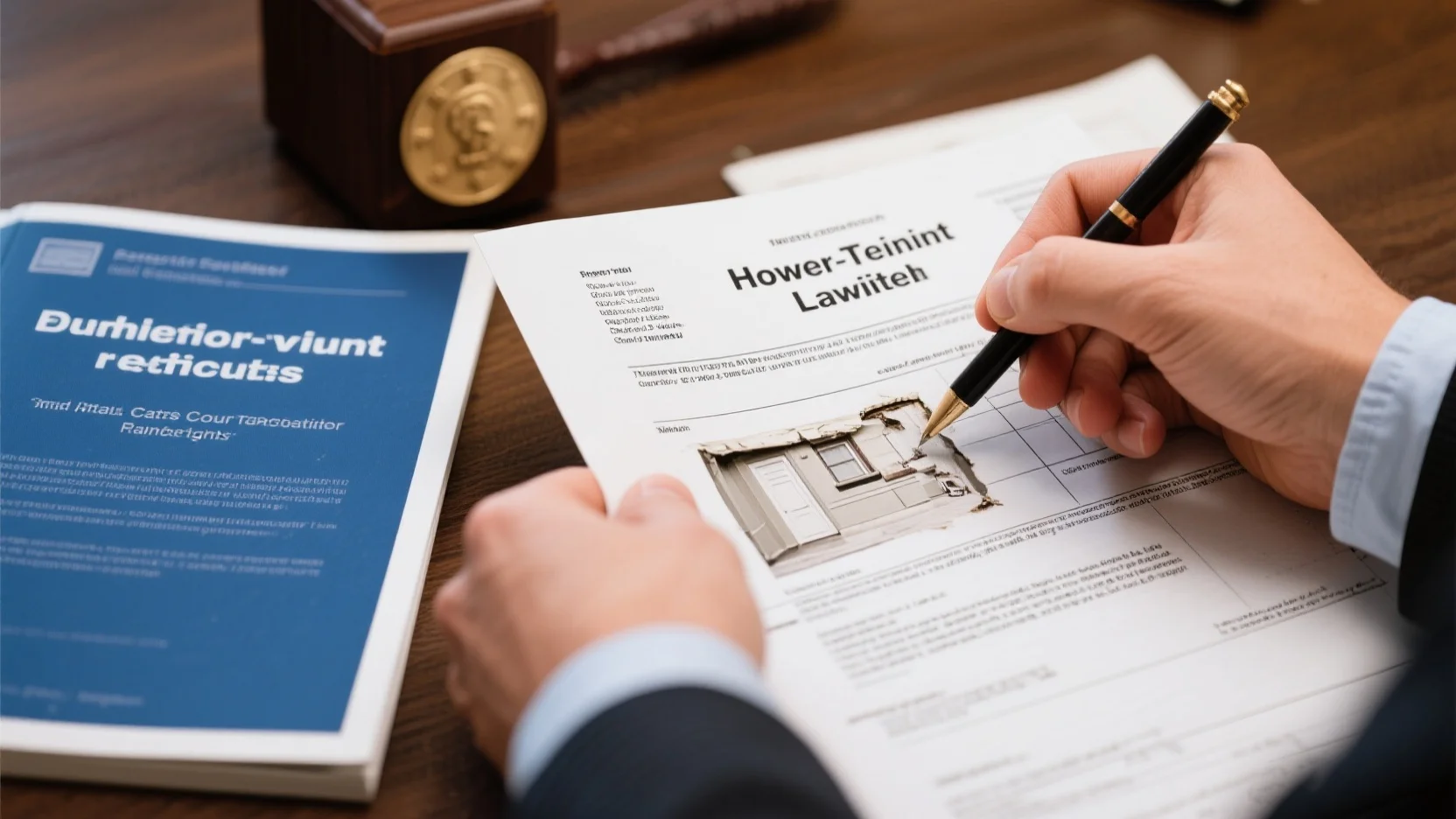Image Source: pexels
Have you ever felt frustrated because your landlord withheld your security deposit unfairly? You’re not alone. Many tenants face this issue. Landlords often claim poor property conditions or make unjustified deductions. If this sounds familiar, you can take action. Let me walk you through how to sue a landlord for security deposit violations.
Key Takeaways
- Learn your state’s rules about security deposits and deductions. Knowing this helps you act if your landlord breaks the rules.
- Talk to your landlord first before suing. Clear communication can solve problems faster and with less stress.
- Collect proof like your lease and pictures to back up your claim. Good proof makes it easier to win in court.
Legal Obligations of Landlords Regarding Security Deposits
Image Source: pexels
Timelines for Returning Security Deposits
When it comes to getting your security deposit back, landlords have strict deadlines they need to follow. These timelines vary by state, and knowing your state’s rules can save you a lot of headaches. For example, in Delaware, landlords must return the deposit within 20 days, while in Florida, the timeframe can range from 15 to 60 days depending on the situation. In states like Vermont, the deadline is 14 days, but it stretches to 60 days for seasonal rentals.
Here’s a quick snapshot of some state-specific timelines:

| State | Timeline for Returning Security Deposit |
|---|---|
| Delaware | 20 days |
| Florida | 15 to 60 days |
| Vermont | 14 days (60 days for seasonal rentals) |
| Texas | 30 days |
| Wisconsin | 21 days |
If your landlord misses the deadline, you may have grounds to take legal action.
Conditions for Lawful Deductions
Landlords can’t just deduct money from your security deposit for any reason. The deductions must be lawful and clearly outlined. Common reasons include unpaid rent, damages beyond normal wear and tear, and cleaning costs. For instance, in Arizona, landlords can deduct for unpaid rent or excessive damage, but they can’t charge you for minor scuffs or faded paint.
Always check your lease agreement and state laws to see what’s allowed. If the deductions seem unfair, you can challenge them.
Itemized List of Deductions Requirement
If your landlord deducts money from your deposit, they must provide an itemized list explaining why. This list should include specific amounts and reasons for each deduction. In states like Alaska, landlords are required to send this list within 14 days if they’re withholding part of your deposit. Without this documentation, you can argue that the deductions are invalid.
Keep all communication with your landlord, especially if you suspect violations. It’s your right to demand transparency.
Resolving Security Deposit Disputes Before Filing a Lawsuit
Communicating with Your Landlord
Before jumping into legal action, I always recommend trying to resolve the issue directly with your landlord. It’s often faster and less stressful. Here’s how I’d approach it:
- Know your rights. Brush up on your state’s security deposit laws, including deadlines and rules for deductions.
- Talk it out. Reach out to your landlord and explain your concerns calmly. Sometimes, a simple conversation can clear up misunderstandings.
- Document everything. If you agree on a solution, make sure to get it in writing. This protects both you and your landlord.
- Consider mediation. If talking doesn’t work, mediation can help. A neutral third party can guide both sides toward a fair resolution.
If these steps don’t work, it’s time to take things up a notch.
Sending a Formal Demand Letter
A demand letter is your next move if your landlord refuses to cooperate. It’s a professional way to show you’re serious about getting your deposit back. Here’s what I’d include in the letter:
- The address of the rental property and the dates you lived there.
- The amount you paid as a security deposit.
- A clear explanation of why you’re entitled to a refund.
- References to state laws that support your claim.
- The penalties your landlord could face for not returning the deposit.
- The deadline by which your landlord should’ve returned the deposit.
- A new deadline for them to comply.
- Your address for sending the deposit or an itemized list of deductions.
- A statement that you’ll file a lawsuit if they don’t respond by your deadline.
Keep the tone firm but polite. This letter often motivates landlords to act quickly.
Reviewing State-Specific Security Deposit Laws
Every state has its own rules for security deposits, so knowing your local laws is crucial. For example, some states cap the maximum deposit amount, while others require landlords to pay interest on deposits. Here’s a quick comparison:
| State | Maximum Deposit | Return Deadline | Interest on Deposit | Deductions Allowed |
|---|---|---|---|---|
| Alabama | One month’s rent | 60 days | n/a | Unpaid rent, damages beyond normal wear and tear |
| Alaska | Two months’ rent | 14 days (with notice), 30 days (without) | n/a | Damage beyond normal wear and tear |
| Arizona | One and a half months’ rent | 14 days | n/a | Unpaid rent, damage beyond normal wear and tear |
| Arkansas | Two months’ rent | 60 days | n/a | Damage beyond normal wear and tear, cleaning costs, unpaid rent, late fees |
Understanding these laws can strengthen your case. If you’re unsure about anything, consult a legal expert.
How to Sue a Landlord for Security Deposit Violations in Small Claims Court
Determining Eligibility for Small Claims Court
Before filing a lawsuit, I always check if my case qualifies for small claims court. Small claims courts handle disputes involving smaller amounts of money, usually between $2,500 and $10,000, depending on the state. For example, in California, the limit is $10,000, but in Kentucky, it’s $2,500. If your claim exceeds the limit, you might need to waive the extra amount or file in a higher court.
I also make sure my case fits the court’s purpose. Small claims courts are perfect for straightforward cases like security deposit disputes. They don’t require a lawyer, which keeps things simple and affordable. If you’re unsure, your local court clerk can help you figure out if your case qualifies.
Filing the Complaint and Paying Fees
Once I confirm eligibility, I file a complaint with the small claims court. This involves filling out a form, which usually asks for details like the landlord’s name, the amount you’re claiming, and why you’re suing. I make sure to include all relevant facts and stick to the point.
There’s a filing fee, which varies by state but is usually between $30 and $100. If you can’t afford it, some courts offer fee waivers. After filing, the court provides a case number and a hearing date.
Serving the Landlord with Court Documents
After filing, I need to serve the landlord with the court documents. This step is crucial because it officially notifies them of the lawsuit. I can’t do this myself, so I hire a process server, use certified mail, or ask the sheriff’s office for help.
The court usually requires proof of service, like a signed receipt or affidavit. Without this, the case can’t move forward. I always double-check the rules in my state to ensure proper service.
Preparing for Court and Presenting Your Case
Image Source: unsplash
Gathering Evidence (Lease Agreements, Receipts, Photos, etc.)
When preparing for court, evidence is your best friend. I always start by gathering everything that supports my case. This includes the lease agreement, receipts for rent payments, and any correspondence with the landlord. If you took photos of the property when you moved in and out, those are gold. They can show the condition of the apartment and help prove your point.
Don’t forget to bring any demand letters you sent to the landlord. These show that you tried to resolve the issue before going to court. If you have witnesses, like a roommate or neighbor who can vouch for the apartment’s condition, ask them to testify. The more evidence you have, the stronger your case will be.
Tip: Keep everything organized in a folder or binder. It makes it easier to present your case confidently.
Organizing Your Case and Practicing Your Argument
Once I have all my evidence, I focus on organizing it. A clear and logical presentation can make a big difference. Here’s how I do it:
- Plan thoroughly to build a strong foundation for your case.
- Prepare witnesses by practicing mock examinations. This helps them feel more comfortable.
- Build a strong narrative. Tell your story in a way that’s easy to follow and memorable.
- End with a summary of your strongest points to leave a lasting impression.
I also practice my argument. I rehearse what I’ll say and how I’ll respond to questions. Maintaining eye contact and speaking with confidence can make you more credible.
Note: Acknowledge any weaknesses in your case upfront. It shows honesty and can earn the court’s trust.
What to Expect During the Hearing
Walking into court can feel intimidating, but knowing what to expect helps. In a small claims hearing, you’ll present your case first. Bring all your evidence, including photos, receipts, and the lease agreement. If you documented the apartment’s condition when you moved in and out, that’s a big plus.
The landlord will also get a chance to present their side. Stay calm and listen carefully. When it’s your turn to respond, stick to the facts. If you have witnesses, they’ll testify about the apartment’s condition.
Tip: Dress professionally and stay respectful. A good impression can go a long way.
By preparing thoroughly and staying composed, you’ll increase your chances of success. Remember, the court is there to hear your side and ensure fairness.
Possible Outcomes of Suing a Landlord
Monetary Awards and Penalties
Winning a security deposit lawsuit can lead to significant monetary awards. Depending on your state, you might recover up to three times the deposit amount if the landlord acted in bad faith. For example, in California and Colorado, tenants can receive up to three times the deposit as compensation. Some states even allow you to recover court costs and attorney fees.
Here’s a quick look at potential outcomes:
| State | Potential Recovery for Tenants | Notes on Penalties for Landlords |
|---|---|---|
| California | Up to 3x the deposit amount | Punitive damages for bad faith actions possible |
| Colorado | Up to 3x the deposit amount | Penalties for improper handling of security deposits |
| Georgia | Up to 3x the deposit amount | Legal action for wrongful withholding may be pursued |
| Other States | Varies | Some states allow for attorney fees and court costs recovery |
If the landlord fails to return your deposit or provide an itemized list of deductions, they could face fines or additional penalties. This is why understanding your state’s laws is so important.
Steps to Take if You Win or Lose
If you win your case, the next steps are straightforward. First, ensure the landlord complies with the court’s decision. If they owe you money, they must pay promptly. If they don’t, you might need to take further action, like garnishing their wages or placing a lien on their property.
If you lose, don’t panic. Review the court’s decision carefully. Sometimes, you can appeal the ruling or negotiate a settlement with the landlord. Either way, use the experience to better understand your rights as a tenant.
Here’s a quick checklist for what to do after the case:
- If you win, follow up with the landlord to collect your award.
- If the landlord doesn’t pay, explore enforcement options like wage garnishment.
- If you lose, review the judgment and consider appealing if you believe the decision was unfair.
- Learn from the process to avoid similar issues in the future.
Options for Further Legal Action
Sometimes, small claims court isn’t the end of the road. If the landlord refuses to comply with the judgment, you can escalate the matter. For example, you might file a motion to enforce the court’s decision. In extreme cases, you could pursue a higher court’s intervention.
On the flip side, landlords can also take legal action if they believe the security deposit doesn’t cover damages or unpaid rent. This is why it’s crucial to document everything and stay prepared.
Ultimately, knowing how to sue a landlord for security deposit violations gives you the tools to protect your rights. Whether you win or lose, the experience can empower you to handle future disputes with confidence.
Suing a landlord for security deposit violations doesn’t have to feel overwhelming. If you know your rights and follow the steps I’ve shared, you’ll be in good shape. Always try to settle disputes peacefully first. When in doubt, consult a legal expert to guide you through the process confidently.
FAQ
What should I do if my landlord refuses to pay after I win the case?
If your landlord doesn’t pay, you can enforce the judgment. Options include wage garnishment or placing a lien on their property.
Tip: Contact your local court for guidance on enforcement procedures.
Can I sue my landlord if I didn’t send a demand letter first?
Yes, but I recommend sending a demand letter first. It shows you tried to resolve the issue and strengthens your case in court.
How long does it take to resolve a security deposit lawsuit?
It depends on your state and court schedule. Most small claims cases take a few weeks to a few months to resolve.
Note: Filing early and being prepared can speed up the process.





